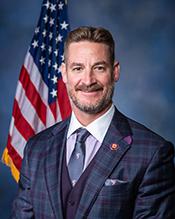0
Black Vulture Relief Act of 2024
12/16/2024, 7:30 PM
Summary of Bill HR 1437
The bill proposes several measures to help mitigate the negative impact of black vultures. These measures include allowing landowners to take non-lethal actions to deter black vultures from their property, such as using visual deterrents or noise-making devices. Additionally, the bill would provide funding for research and education programs aimed at better understanding and managing black vulture populations.
Supporters of the Black Vulture Relief Act argue that these birds pose a significant threat to farmers and ranchers, as they can cause damage to livestock and property. By allowing landowners to take proactive measures to protect their assets, this bill aims to reduce the economic impact of black vultures on agricultural communities. Opponents of the bill, however, raise concerns about the potential impact on black vulture populations, which are already declining in some areas. They argue that more research is needed to fully understand the behavior and habits of black vultures before implementing any management strategies. Overall, the Black Vulture Relief Act of 2023 is a complex piece of legislation that seeks to balance the needs of landowners with the conservation of black vulture populations. As the bill continues to be debated in Congress, it will be important for lawmakers to carefully consider the potential consequences of their actions on both the agricultural community and the environment.
Congressional Summary of HR 1437
Black Vulture Relief Act of 2023
This bill allows livestock producers and their employees to take certain actions against black vultures to protect livestock. (Black vultures are protected under the Migratory Bird Treaty Act.)
Specifically, livestock producers and their employees may (1) take (i.e., capture, kill, disperse, or transport) a black vulture that they reasonably believe will cause death, injury, or destruction to livestock; or (2) in the course of taking or attempting to take the black vulture, cause injury to the bird.
Livestock producers and their employees must submit an annual report to the U.S. Fish and Wildlife Service (FWS) on black vultures taken under this bill. The FWS must make this reporting form available on its website.
Currently, the FWS has a permit process under the Migratory Bird Treaty Act for the taking of black vultures.





